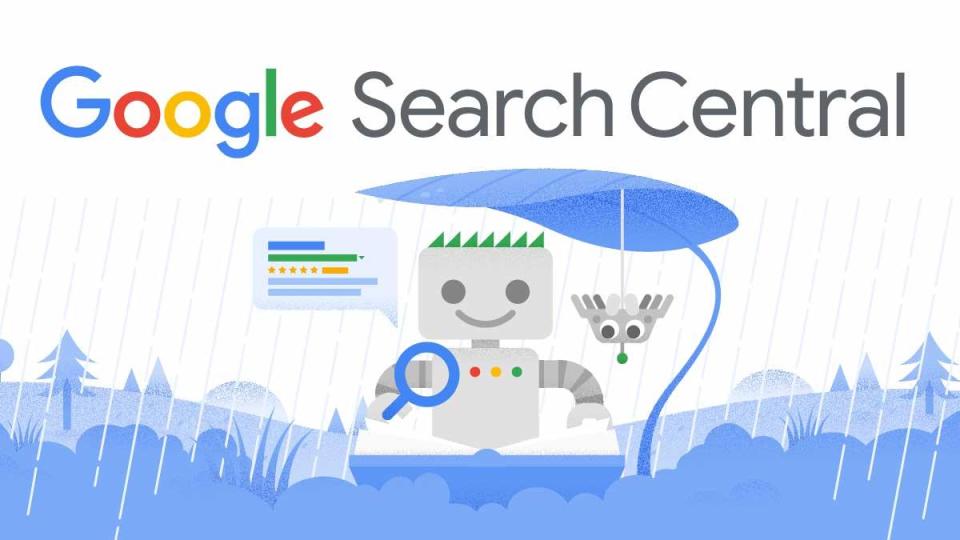- The SEOs Diners Club
- Posts
- 🔥 The SEOs Diners Club - Issue #120 - Weekly SEO Tips & News
🔥 The SEOs Diners Club - Issue #120 - Weekly SEO Tips & News
Here are the weekly SEO insights for the SEOs Diners Club members.

Welcome to another insightful week with The SEOs Diners Club newsletter. Leveraging over a decade of SEO expertise, I aim to distill the week's most critical developments into a concise read that will take less than seven minutes. Let's dive into the insights that matter.
From SEO to GEO: New Era in Search Engine Optimization
GEO (Generative Engine Optimization) is an advanced SEO approach that optimizes content for AI-powered search engines.

From SEO to GEO: New Era in Search Engine Optimisation
With the introduction of AI-powered search results into our lives, I have to point out that the concept of GEO is gradually being adopted. This new concept goes beyond the traditional methods of SEO and is adapted to provide more effective and efficient optimization with AI technologies.
Essential Components of GEO:
Content Generation: Creating high-quality, SEO-friendly content using artificial intelligence. This content remains dynamic and relevant by adapting to the results of AI search engines.
Keyword Research: AI tools analyze large data sets to identify relevant keywords and trends. GEO emphasizes long-tail and colloquial keywords that align with natural language processing (NLP) trends.
Content Optimization: Beyond traditional SEO, GEO makes AI-readable content. It optimizes elements such as structured data, citations, and authoritative sources.
Performance Analytics: AI-powered analytics enable continuous monitoring and strategy improvement. GEO focuses on metrics such as citation visibility, relevance of responses, and user engagement.
Automation: Automates repetitive SEO tasks. GEO integrates AI tools for backlink building, metadata management, and real-time content audits.
User Experience Improvement: AI analyzes user behavior and preferences to improve website design and functionality. GEO aims to deliver a seamless user experience.
Predictive Analytics: AI predicts future trends and user behavior. GEO proactively adjusts SEO strategies using these insights.
Differences Between SEO and GEO
SEO: Optimizes websites for traditional search engine results pages (SERPs).
GEO: Targets AI-powered search engines, optimizing content visibility in AI-generated responses.
Success Criteria
SEO Metrics: Click-through rate, bounce rate, and time on page.
GEO Metrics: Citation visibility and relevance to user queries.
Implementation Strategies
SEO: Universally applicable strategies for various types of content.
GEO: Domain-specific strategies, including authoritative language, citation optimization, and statistical improvements.
The concept of GEO is already being bandied about left and right, and service pages like the one below are being created:
The bottom line is that SEO and GEO are important for increasing website visibility. They address different types of search engines. Understanding and implementing both strategies will ensure comprehensive visibility and maximum reach in the digital environment. We will talk more about this new concept in the coming period.
Google AI Overviews and Impact on SEO: Bright Edge Analysis
Google AI Overviews appear frequently in health and B2B tech searches but rarely in local searches. This new feature will lead to significant changes in the SEO world.
I want to share with you a new study by BrightEdge that provides valuable insights into Google AI Overviews (AIO) and what types of search queries trigger AIO.
Research Findings
The research reveals how often AIO is shown in different sectors and which types of searches trigger AIO. For example, 63% of health-related searches reveal AIO. B2B technology searches show AIO results 32% of the time, while e-commerce searches show AIO results 23% of the time. In contrast, searches that require structured data, such as local searches and brand queries, trigger AIO less frequently.
Another interesting result from the research is that fewer AIOs appear in search results than in the beginning. It is now triggered in only 15% of search queries. It seems that Google has decided to be slightly more cautious until the initial lousy user experience is fixed.
BrightEdge data -> Google AI Overviews visibility drops, only shows for 15% of queries
And I'm tracking AI overviews for several sites now across industries (limited queries per site obviously). In total, I'm seeing AI overviews for 15% of the queries exactly. So very… x.com/i/web/status/1…
— Glenn Gabe (@glenngabe)
4:47 PM • Jun 4, 2024
Paradigm Shift?
BrightEdge characterizes this change as the most significant paradigm shift in decades. However, it is essential to remember that Google has already been an AI-powered search engine with RankBrain and other AI-based search changes since 2015. With the infrastructure changes made at the beginning of 2024, AI became more prominent in search results and started to replace featured snippets.
What Triggers What Doesn't?
The research shows that prominent snippets and questions will likely trigger AIO. In contrast, searches that require more structured data, such as local search queries and sitelinks, are less likely to trigger AIO.
Industry Differences
The research reveals significant differences in the frequency with which AIO is shown in different industries. While the health sector triggers AIO 63% of the time for information search queries, AIO results are less common in restaurant and travel searches.
Google's AI Overviews feature is leading to significant changes in search results. To adapt your SEO strategies to this new feature, it may be helpful to structure your content in a question-and-answer format and create topic overview pages. Creating content that complies with Google's search algorithms is enough for you to participate in AIO.
Advice for SEO Experts on Google AI Overviews (AIO) and Large Language Models (LLMs)
Google is not going to give up on AIO. SEO professionals should strategically adapt and accept this situation.
Google AI Overviews seem to have disturbed SEO experts worldwide, especially in America. But instead of hoping to go back to before this era, SEO experts need to adapt quickly to this new era.
Audit your current traffic-generating keywords in Google Search Console and identify the top keywords that artificial intelligence will likely answer. Don't give up on these keywords, but be prepared for the possibility of losing them to AI Overviews and communicate to your stakeholders that this is possible.
Identify your potential mid-level keywords and address them on your site. If you haven't created content for mid-level queries, do so now.
While the impact of links on SEO is always controversial, keep in mind that inbound links through your brand name are compelling in the AI Overviews era. Instead of focusing only on inbound links, mention your brand name in various places. Mentioning your brand name will feed the associations you receive within AI overviews.
Look at your top-level content and make sure you optimize it for micro conversions. Your top-level content can be pulled into AI Overviews. Instead of waiting to convert a user from that click, develop triggers and actions to move them down the funnel (Newsletter subscriptions, reading more, watching videos, etc.).
Ensure Data Quality LLMs require large amounts of accurate data. Keeping your brand's information accurate and up-to-date across all online platforms is vital. Regular audits of your digital presence help ensure consistency and reliability. This step is critical for building trust and presenting the best data to LLMs.
Natural Language Optimization LLMs communicate with users in natural language, so you must optimize your content accordingly. Use clear, everyday language so that these models easily understand your content. Focus on answering potential questions about your products or services comprehensively. This approach helps LLMs interpret your content accurately and increases user engagement.
Manage Brand Impression LLMs can significantly influence users' perceptions of your brand. Monitoring the information they provide and intervening when necessary is essential to maintain a positive image. By actively engaging with these platforms, correct misinformation and ensure your brand is accurately represented. This proactive approach can help you protect your brand's reputation.
Perplexity Pages Start Appearing on Google AIO
AI overviews created by the Perplexity search engine have started to appear in Google AIO and Search results.
On May 30, 2024, Perplexity launched Perplexity Pages for free and paid users. These pages allow users to create in-depth articles, reports, and guides.
Perplexity Pages allow users to share their knowledge through comprehensive articles, detailed reports, or informative guides. When creating content, you can choose the target audience (from beginner to advanced) and add chapters, videos, and images.
The funny thing is that Google is already indexing this content and showing it up in search results and AIO. This means that one search engine's AIO summary is showing up in another search engine's AIO summary. In other words, Perplexity Pages seems to have exploited an unforeseen vulnerability of Google AIO during its development. Presumably, Google will block this soon.

Google Announces That Sites That Are Not Mobile Friendly Will No Longer Be Indexed
Google will begin the final transition to mobile-first indexing of search results on July 5, 2024. After that date, the few sites still crawled with desktop Googlebot will be crawled with mobile Googlebot.
Google crawls and indexes almost all websites using a smartphone browser. Over the years, the number of sites that are inaccessible on mobile has decreased. To simplify their system and make identifying issues based on device types easier, all sites will now be crawled with Googlebot Smartphone.
Most of the web is already crawled this way, and there will be no change in crawling for these sites. After July 5, 2024, sites whose content is not accessible on mobile devices will no longer be indexed.
You may still see Googlebot Desktop in your server logs and reporting. For example, some search features, product listings, and features like Google for Jobs will continue to use Googlebot desktop.
Recommended Tools & Services
WhitePress: WhitePress is a content marketing platform that enables accessible article publishing across 90,571 websites in 30 languages, offering native copywriting and automated global publication services.
Cannibalization Explorer Looker Studio Report is a tool for identifying keyword cannibalization and providing insights into how keywords perform across different pages.
SurferSEO is a tool that helps you create and optimize content for SEO. It analyzes the top-ranking pages for your target keywords and gives you suggestions on how to improve your content. Surfer AI also has a feature that can generate ready-to-rank articles in minutes.
Copilot Pro: Copilot Pro is available for $20/month for cloud-based GenAI models and $27/month with Microsoft 365. It is integrated with Microsoft 365 applications and provides access to GPT-4 Turbo and advanced AI rendering tools.
AlsoAsked is a helpful tool that can boost your visibility in the “People Also Ask” section of Google's search engine results page.”
Semrush Map Rank Tracker is a Google-changing tool for local businesses looking to dominate their niche and attract more customers. I've been using the free version for a while now, and I'm impressed with its ease and effectiveness.
ContentShake AI is an intelligent writing tool that combines AI with real-life competitor insights. It guides you from ideation to publishing directly to the blog, generates SEO-friendly articles, and helps you optimize them for organic traffic and engagement.
Microsoft Clarity has recently introduced a feature called Copilot, which incorporates Generative AI through Large Language Models (LLMs) into the analytics tool. This integration aims to make data more accessible and understandable for users by leveraging the same technology created by OpenAI, which powers the new Bing or ChatGPT.
InLinks is an SEO tool that uses a knowledge graph to optimize content for search engines. It automates internal linking and schema markup, simplifying SEO processes and content strategies.
Subscribe to my newsletter to stay informed about the latest in SEO and digital marketing. Next week, I'll continue to share the newest insights, tactics, and strategies for navigating the ever-evolving digital marketing landscape.
Support My Newsletter:
If you find my content valuable, consider buying me a coffee to support my work. Your contribution will help me continue sharing the latest SEO developments. Let's achieve more together!
Best,
Mert Erkal

